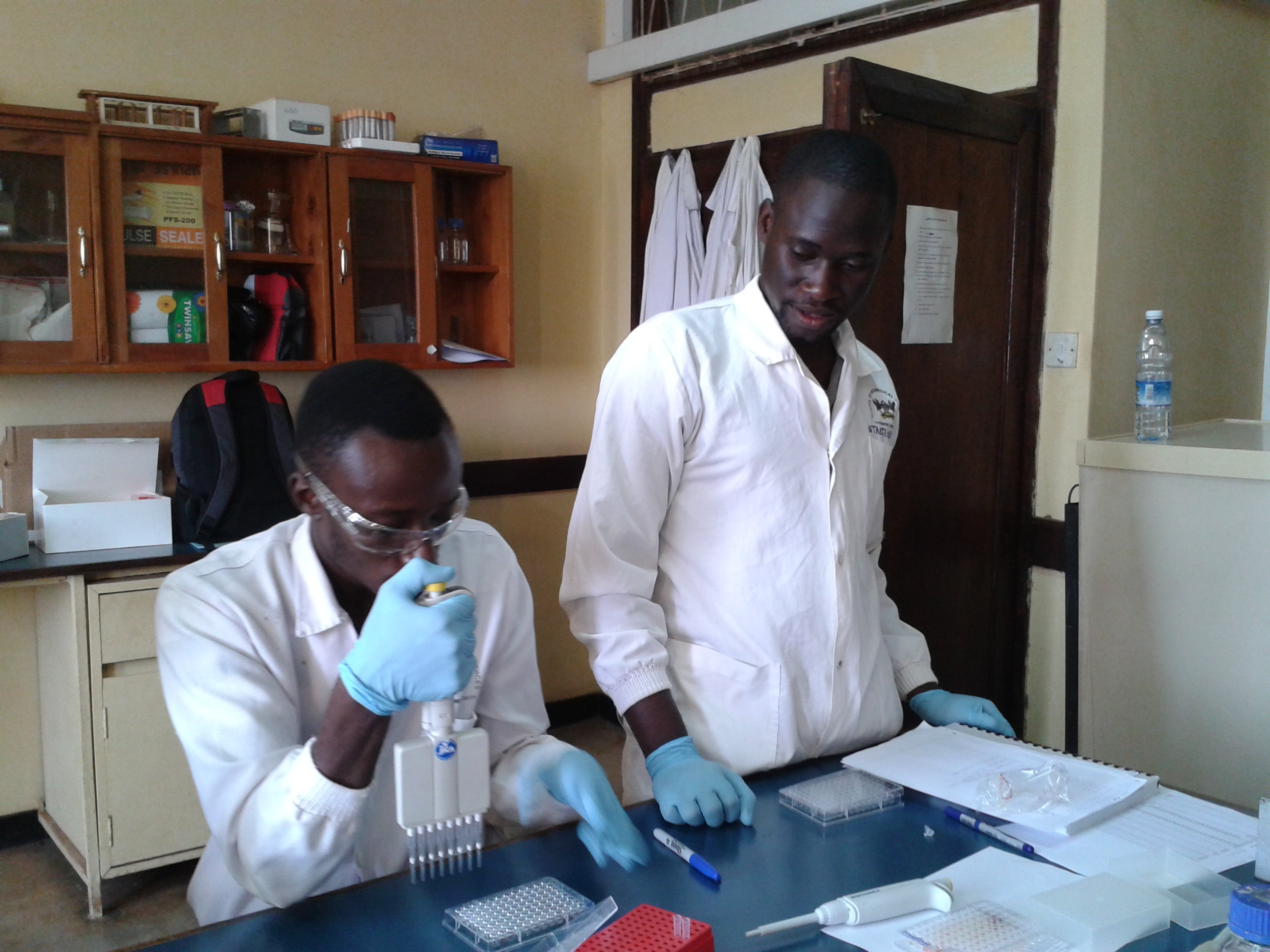Leptospira in Uganda
The burden of leptospirosis in livestock, wildlife, rodents and humans in Uganda is unknown due to the lack of surveillance systems, awareness and diagnostic capacity. In the framework of a Memorandum of Understanding between Makerere University, Uganda and University of Zurich, Switzerland, we are planning and conducting several studies in humans and animals to investigate the epidemiology of leptospirosis in Uganda using One Health concepts in collaboration with several partners in Uganda, Switzerland, USA, New Zealand and the Netherlands.
Leptospira Sero-prevalence and Risk Factors in Health Centre Patients in Hoima District, Western Uganda
The cross sectional study objectives are to estimate the sero-prevalence of Leptospira antibodies and probable leptospirosis in humans visiting two Health Centers IV’s in Hoima District, Western, Uganda. Secondary objectives include analyzing risk factors for sero-positivity against specific leptospira serovars and for probable acute leptospirosis. Three hundred fifty nine patients seeking health care from Kikuube and Kigorobya Health Center IV’s during March and April 2014 were recruited for the study, interviewed and blood samples following a consent process. Sera were tested by the Microscopic Agglutination Test (MAT) using eight Leptospira serovars.
First results have been published:
http://journals.plos.org/plosntds/article?id=10.1371/journal.pntd.0004858
Leptospira Sero-prevalence in Ugandan Cattle
The objective was to estimate the Leptospira antibody sero-prevalence in cattle in different Ugandan districts. 300 cattle sera were sampled in various regions of Uganda will be tested by MAT against 13 Leptospira serovars at the Institute of Veterinary Bacteriology, University of Bern.
Laboratory Capacity Building of the Diagnosis of Leptospirosis in Humans and Animals

The aim of this project is to build laboratory capacity for the epidemiological investigation and the clinical diagnosis of leptospirosis in Uganda. The objective is to be able to isolate Ugandan strains, establish molecular and serological methods by training laboratory personnel and deliver consumables, which are difficult to buy on the Ugandan market. The Central Diagnostic Laboratory at Makerere University was identified to have the required infrastructure (dark field microscope, PCR machines) and trained personnel and was interested in collaboration. They have a mandate with us to test samples for ongoing epidemiological studies. In a first step, the Microscopic Agglutination test (MAT) was established to be able to test human and animal sera for Leptospira antibodies. Staff was trained in February 2015 and a panel of ten serovars from different serogroups with corresponding antisera, when possible isolated in Africa, were imported from the Royal Tropical Institute (KIT), the WHO Leptospira Reference Laboratory in The Netherlands.